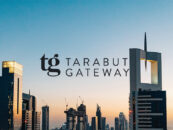Several firms from the United Arab Emirates (UAE), the broader Middle Eastern region, and Asia-Pacific, are looking to establish digital banks in Abu Dhabi’s financial free zone, said Richard Teng, chief executive of the Financial Services Regulatory Authority (FSRA), the Abu Dhabi Global Market (ADGM)’s financial regulator.
“We have several more interested parties that are applying both from the region as well as [from] international [markets],” Teng told The National. “Once those approvals are given and players are ready, they will make their announcements to the market.”
Applicants for a digital banking license include existing conventional banks looking to set up digital arms, as well as companies wanting to expanding virtually, Teng said. He added that COVID-19 has put a sense of urgency to financial institutions’ digital transformation plans.
“What we thought would take another four to five years, in terms of digital adoptions and digital deployment, has been compressed into a period of three months by the Covid-19 situation,” Teng said.
It was a “wake-up call to financial institutions and many other firms,” who had to resort to conducting transaction electronically and onboard customers digitally amid COVID-19 restrictions, he said.
ADGM’s digital banking license
Since introducing its digital bank licensing last year, the ADGM has given the green light to just one player, Anglo-Gulf Trade Bank.
A joint venture between AGTB Holdings and Mubadala Investment Company, Anglo-Gulf Trade Bank is building a digital trade bank that focuses on delivering “simplified, client-centric, inclusive trade banking and transaction banking services,” the company said in a release in September 2019.
To get granted a digital banking license, companies must meet various requirements such as having robust governance structures, compliance and risk management policies, IT security measures, and have certain mandatory senior management appointments.
They must also have a minimum of US$10 million paid-up capital – though capital requirements may be a lot higher, Wai Lum Kwok, executive director of capital markets at the FSRA, said in an interview last year.
ADGM’s licenses for fintechs
In addition to the digital banking license, Abu Dhabi’s financial free zone also offers other forms of licenses for paytech companies as well as those involved in crypto and virtual asset activities.
So far, five digital asset exchanges have been granted a permit, and the ADGM has approved five others in principle. Teng said the five licensees are currently in the final stages of testing and could begin operations as early as Q4’20. He expects the ten companies to be fully operational by the end of 2021.
2019 was a record year in terms of the number of firms applying for licenses in the ADGM, Teng said. He believes 2020 will surpass last year’s numbers.
DIFC pursues fintech ambitions
In the UAE, the Dubai International Financial Centre (DIFC) too has been working towards becoming a global fintech powerhouse. In August, the free zone launched a new license for startups, enterprises and tech firms called the Innovation License, which comes with subsidized commercial licensing options, as well as perks like access to DIFC co-working space at attractive rates.
This year, its fintech accelerator program, DIFC Fintech Hive, received a record of 620 applications. 30% of them were UAE-based firms, 46% were companies from the Middle East and North Africa (MENA) region, and 24% were from the rest of the world.
DIFC also runs the US$100 million DIFC Fintech Fund which invests in startups and growth-stage fintech companies. Recently, it added FlexxPay, Go Rise, NOW Money and Sarwa into its portfolio of companies.
DIFC claims that more than 50% of all fintech businesses in MENA operate from the free zone.
Featured image credit: Pixabay








1 Comment so far
Jump into a conversation